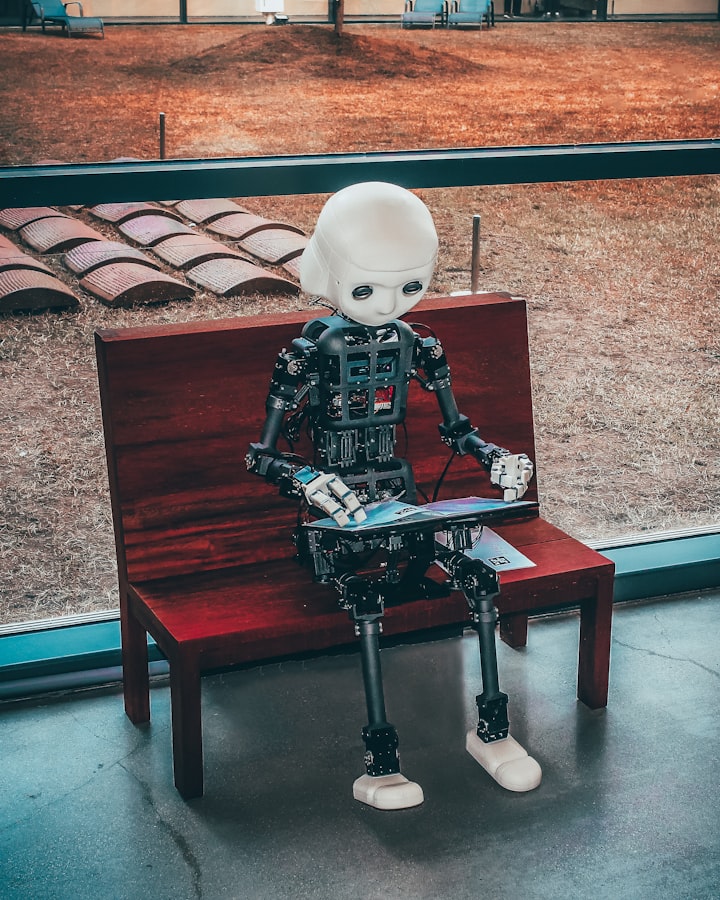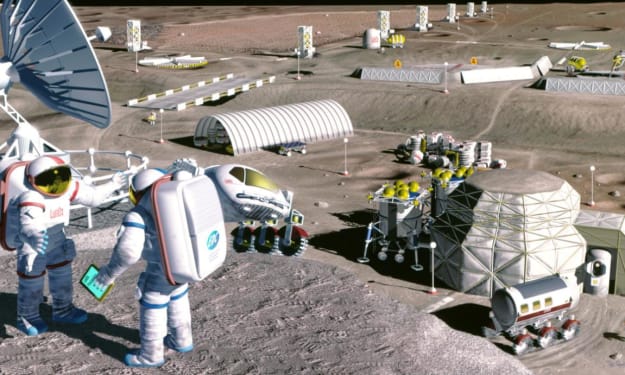The Future of Work: Adapting to Automation and AI
How New Technologies Will Transform the Workplace and What We Need to Do to Prepare

The rapid advancement of automation and artificial intelligence (AI) is changing the way we work. In the future, machines will be able to perform more tasks than ever before, from simple manual labor to complex decision-making. As a result, the nature of work will change dramatically, and we will need to adapt to keep up.
Automation and AI are already transforming many industries, including manufacturing, healthcare, and finance. In the manufacturing sector, robots are increasingly used for repetitive and dangerous tasks, while in healthcare, AI is being used to analyze medical data and assist with diagnoses. In finance, algorithms are being used to analyze market trends and make investment decisions.
As these technologies continue to advance, we can expect them to have an even greater impact on the workplace. Here are some of the ways that automation and AI will transform work in the future:
Increased Efficiency
One of the biggest advantages of automation and AI is that they can perform tasks much more quickly and accurately than humans. This means that we can expect to see significant increases in efficiency as these technologies become more widespread. For example, in the manufacturing sector, robots can work around the clock without getting tired or making mistakes, which means that production can be ramped up significantly.
Job Losses
While automation and AI will undoubtedly create new jobs, they will also lead to job losses. This is because many of the tasks that are currently performed by humans will be automated. For example, cashiers, bank tellers, and data entry clerks are all at risk of being replaced by machines. This means that workers in these industries will need to retrain for new roles.
New Jobs
While some jobs will be lost, others will be created as a result of automation and AI. For example, there will be an increased demand for workers who are skilled in programming, data analysis, and machine learning. Additionally, there will be a need for workers who can repair and maintain the machines and software that power automation and AI.
Greater Flexibility
Automation and AI will make it easier for workers to be flexible with their schedules. For example, remote work will become even more widespread as machines become better at performing tasks that were previously done in the office. Additionally, workers will be able to work more flexible hours as machines take on some of the more routine tasks.
New Business Models
Automation and AI will also lead to the development of new business models. For example, companies that are able to use AI to analyze data and make predictions will have a competitive advantage over those that don't. Additionally, companies that are able to automate many of their processes will be able to operate more efficiently and at a lower cost.
Increased Safety
One of the most significant advantages of automation and AI is that they can perform dangerous tasks that would put human workers at risk. For example, robots can be used to inspect bridges and other structures that are difficult for humans to access. Additionally, robots can be used in hazardous environments such as nuclear power plants and chemical factories.
Improved Customer Service
AI can be used to improve customer service by providing more personalized experiences. For example, chatbots can be used to answer customer queries and provide support around the clock. Additionally, AI can be used to analyze customer data and provide insights that can be used to improve products and services.
Ethical Concerns
While automation and AI offer many benefits, there are also ethical concerns that need to be addressed. For example, there is a risk that machines will be used to replace workers without providing adequate compensation or retraining. Additionally, there is a risk that AI will be used to make decisions that are discriminatory or biased.
Conclusion
Automation and AI will transform the workplace in many ways in the coming years. While these technologies offer many benefits, they also pose significant challenges that must be addressed. It is crucial that we plan for the future of work and ensure that the benefits of automation and AI are shared fairly.
One of the key challenges will be ensuring that workers are able to adapt to new roles as automation and AI change the nature of work. This will require a significant investment in education and training programs, as well as support for workers who lose their jobs due to automation.
Another challenge will be ensuring that ethical concerns are addressed. As AI becomes more sophisticated, it will be able to make decisions that have significant impacts on people's lives. It is crucial that we ensure that these decisions are made in a fair and transparent manner.
Finally, it is important to ensure that the benefits of automation and AI are shared fairly. As these technologies become more widespread, there is a risk that they will widen the gap between rich and poor. It is crucial that we ensure that the benefits of automation and AI are distributed in a way that benefits everyone.
In conclusion, the future of work will be transformed by automation and AI. While these technologies offer many benefits, they also pose significant challenges. It is crucial that we plan for the future of work and ensure that the benefits of automation and AI are shared fairly. By doing so, we can create a future where work is more efficient, flexible, and safe, and where everyone can benefit from the opportunities presented by these transformative technologies.
About the Creator
shankar jadhav
delivering quality content. I have a keen eye for detail, and my writing style is both engaging and informative. I have a strong background in research, and I am always looking for new and interesting topics to write about.






Comments
There are no comments for this story
Be the first to respond and start the conversation.